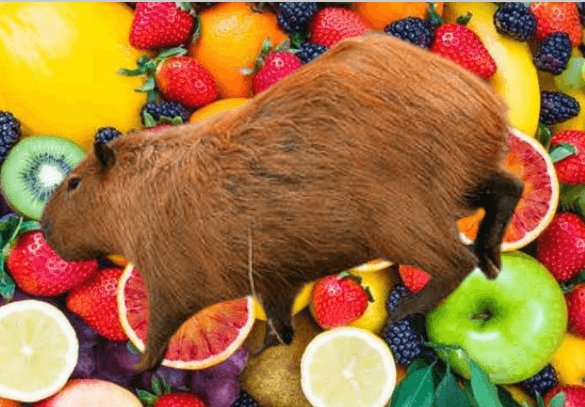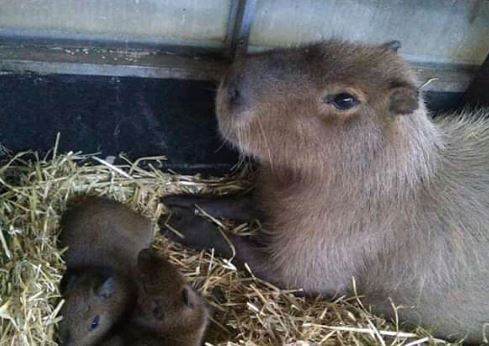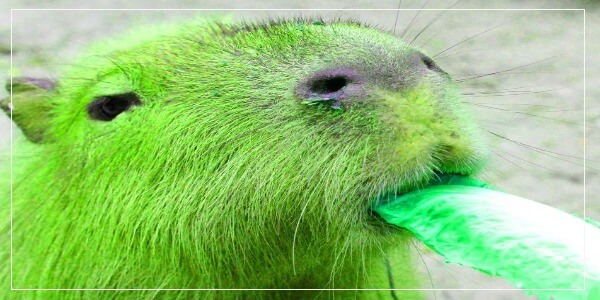The animal world is full of fascinating and sometimes unexpected interactions between different species. One such intriguing phenomenon is the occasional following of capybaras by pelicans.
Capybaras are primarily herbivores found in aquatic environments such as marshes and swamps. On the other hand, pelicans are large waterbirds known for their distinctive pouches and remarkable diving abilities.
Many people often assume that pelicans follow capybaras because they want to prey on them. We have seen videos and reports of pelicans attempting to eat capybaras.
In this discussion, we will explore the possibility of pelicans eating capybaras. We will also explore capybaras’ natural predators and a lot more.
To set things straight, pelicans do not typically eat capybaras. Capybaras are herbivorous animals that graze on vegetation near bodies of water, while pelicans are primarily piscivorous birds, meaning they mainly feed on fish.
While pelicans are known for their impressive diving and fishing skills, they do not typically prey on capybaras as part of their natural diet.
While capybaras and pelicans share certain habitats, their interactions are more likely to involve coexistence rather than predation.
Should Pelicans Prey on Capybaras?
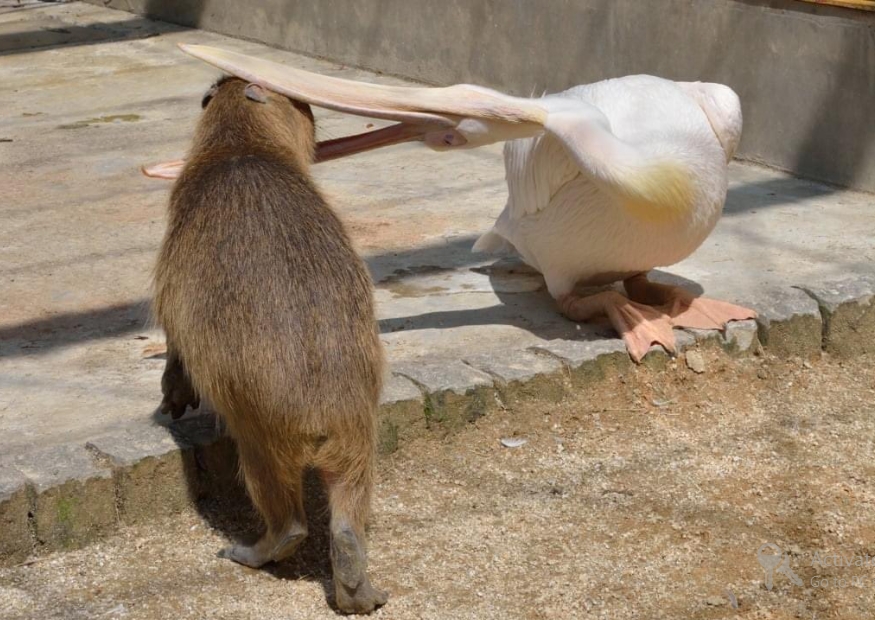
No, it is not normal for pelicans to prey on capybaras. Pelicans are primarily fish-eating birds and, generally, do not hunt or consume capybaras as part of their natural diet.
While pelicans are opportunistic feeders and can consume various prey items, including small mammals, on rare occasions, capybaras are not a typical or common food source for pelicans. Their feeding habits mainly revolve around fish and other aquatic organisms found in their habitat.
Pelicans often follow a capybara because a capybara loves water. They know there is a good chance of seeing a fish when they follow these animals in the water.
Do Pelicans Feast On Capybaras?
Although there might be some fabricated stories from different individuals, there are no documented cases of pelicans feeding on capybaras. Pelicans are primarily fish-eating birds and do not typically prey on capybaras. Capybaras are large rodents that primarily feed on vegetation and are not a natural part of a pelican’s diet.
While it is always important to acknowledge the possibility of unique or rare occurrences in nature, there is no scientific evidence or documented instance of pelicans actively hunting and consuming capybaras.
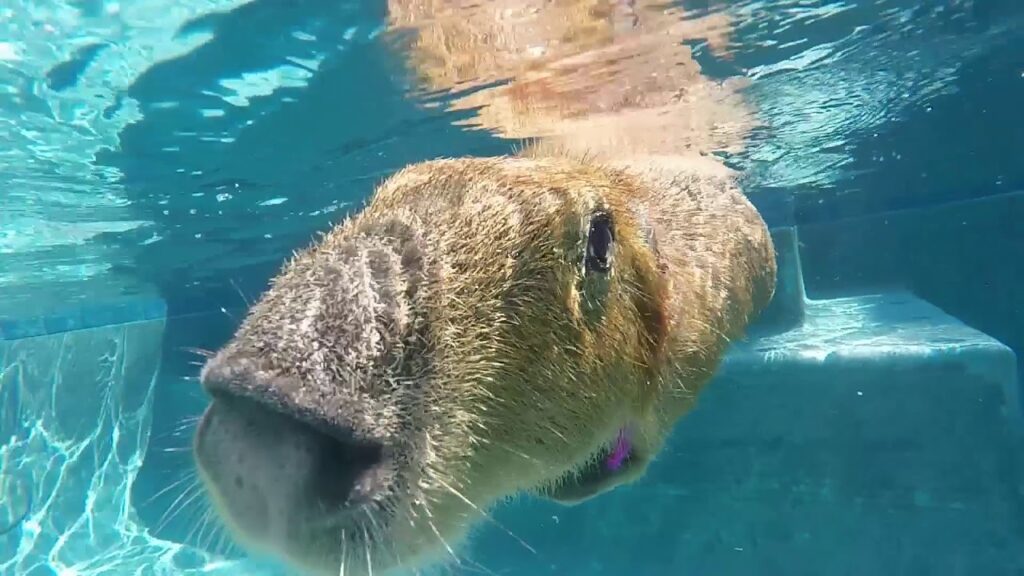
Are there any specific circumstances or factors that lead to pelicans consuming capybaras?
No, no specific circumstances or factors would lead to pelicans consuming capybaras. Pelicans are primarily fish-eating birds, and their diet consists mainly of fish and other aquatic creatures.
On the other hand, Capybaras are large herbivorous rodents that primarily feed on vegetation and do not typically venture into bodies of water where pelicans are commonly found.
Pelicans have a distinctive feeding behavior where they plunge-dive into the water to catch fish near the surface. They have a pouch-like beak that helps them scoop up fish while filtering out excess water. Capybaras, being terrestrial animals, do not possess the characteristics or behaviors that would make them a natural prey item for pelicans.
Although it is important to consider the diverse and sometimes unexpected interactions that can occur in nature, there is no scientific evidence or documented case of pelicans consuming capybara.
READ MORE: Can You Have a Capybara as a Pet in Utah?
Are capybaras a common food source for pelicans in certain regions or habitats?
Capybaras are not a common food source for pelicans in any region or habitat. Pelicans are primarily fish-eating birds and rely on fish and other aquatic creatures as their main food source.
Capybaras are semi-aquatic animals that inhabit wetlands, rivers, and lakes. At the same time, pelicans are commonly found in coastal areas, estuaries, and other bodies of water where they can easily catch fish. The pelicans’ dietary preferences and feeding behaviors are not adapted to capturing and consuming capybaras.
Do capybaras pose a threat or compete with pelicans in any way, leading to predation?
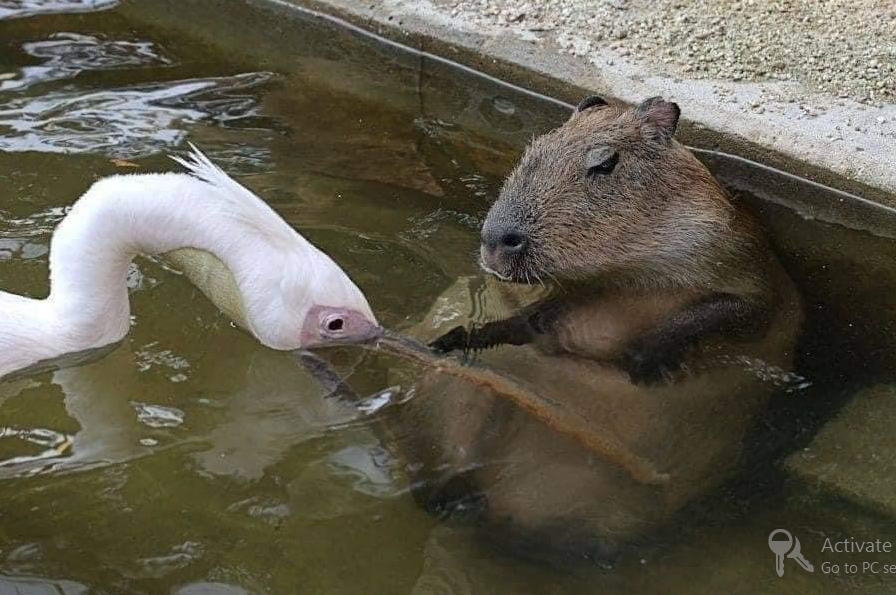
Capybaras do not pose a direct threat or compete with pelicans in a way that would lead to predation. Capybaras are herbivorous animals that feed on vegetation such as grasses, aquatic plants, and fruits. They do not actively hunt or prey on other animals, including pelicans.
Capybaras and pelicans can coexist peacefully in their natural habitats without direct competition or conflict. Capybaras are more likely to interact with pelicans in terms of sharing the same water bodies, as capybaras are semi-aquatic and often found near lakes, rivers, and wetlands where pelicans may also be present.
Capybaras and pelicans have different ecological roles and dietary preferences, and their interactions are not typically characterized by predation or competition.
RELATED: Can I Have a Pet Capybara in Florida?
Is there any alternative or mistaken reports of pelicans eating capybaras?
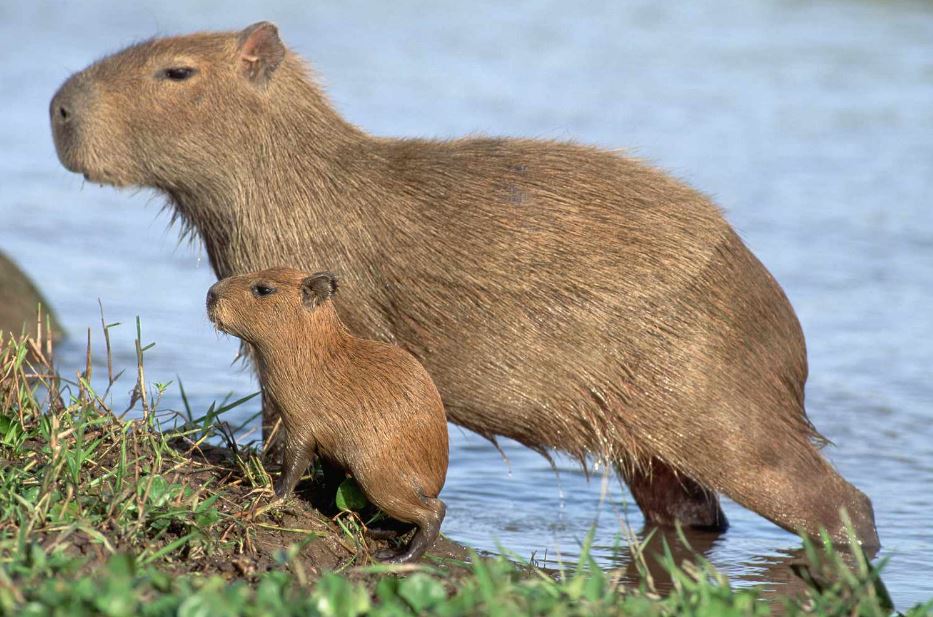
There are no documented reports or credible evidence of pelicans eating capybaras. Although there might be several rumors or videos about it online, you must know that it is scientifically impossible for pelicans to eat capybara.
RELATED: Are Capybaras The Friendliest Animals?
What are the natural predators of capybaras, and do pelicans fall into this category?
The natural predators of capybaras can vary depending on their habitat. Here are some common predators you should know about.
- Jaguars: Jaguars are powerful big cats known to hunt capybaras, especially in areas where their habitats overlap.
- Caimans: Caimans are crocodilian reptiles found in Central and South America. They prey on capybaras, particularly when they come near water.
- Anacondas: Green anacondas, one of the largest snake species, are capable of preying on capybaras. They are known to ambush and constrict their prey.
- Pumas: Pumas, also known as cougars or mountain lions, can occasionally target capybaras, especially in regions where their ranges overlap.
- Birds of Prey: Large birds of prey such as harpy eagles, black eagles, and crested eagles have been known to prey on capybaras, particularly young or injured individuals.
Pelicans, on the other hand, are primarily fish-eating birds and are predators of capybaras. Pelicans primarily feed on fish, although they may also consume other small aquatic animals. While pelicans can scavenge or opportunistically consume small or injured capybaras, they are not considered natural predators of capybaras.
RELATED:
- Do Humans Hunt Capybaras?
- What Are The Benefits Of Owning A Capybara
- Pool Size for Pet Capybara: What To Know
- Top 20 Healthy Fruits Capybaras Eat
Conclusion
Many misconceptions are flying around regarding capybaras and their interaction with pelicans. One such is that pelicans can prey on capybaras. You must know that pelicans cannot eat capybaras.
We have addressed some of the misconceptions in this article. We have also discussed capybaras’ natural predators and a lot more.


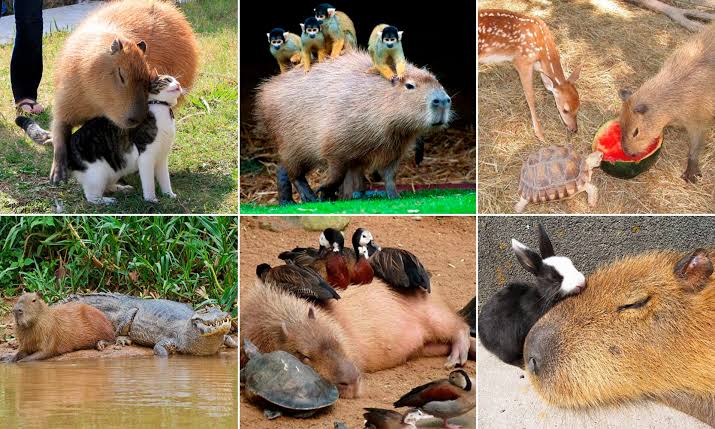
![Why Do Capybaras Not Have Tails? - [Answered] Why Do Capybaras Not Have Tails](https://capybaratips.com/wp-content/uploads/2023/03/Capy-Tail-250x200.webp)
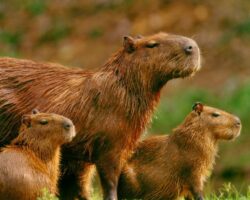

![How Long Do Capybaras Live? - [Answered] How Long Do Capybaras Live](https://capybaratips.com/wp-content/uploads/2023/03/Capybara-Pix-250x200.webp)
